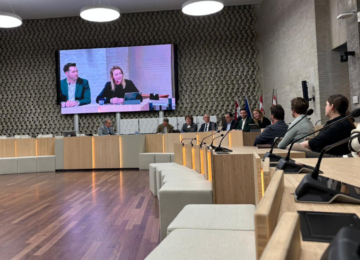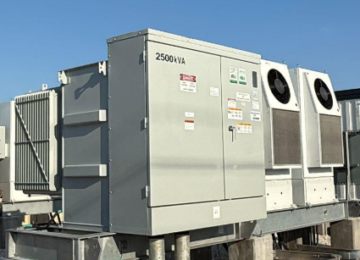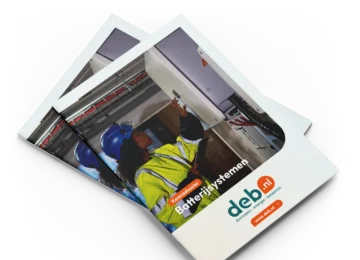What do the election manifestos say about flexibility and storage?
ESNL looked at what the election manifestos say about flexibility and storage. Many parties make the link with grid congestion, some also with strategic autonomy and security of supply. Below is an overview for each party.
BBB
The BBB puts much emphasis on local initiatives, and writes about storage and flexibility in the context of decentralized optimization of generation, storage and consumption of energy. In addition, the BBB talks about rethinking large-scale electrification and smarter use of existing electricity infrastructure.
CDA
The CDA relates flexibility and storage primarily to addressing the threat of grid congestion, talking about encouraging flexible contracts. Permit procedures for electricity projects should be faster through shorter appeal procedures and more permit-free space, with specific attention to restrictions around nitrogen emissions. The party makes a point of spreading the bill for investments in the electricity network over generations. With regard to CO2-free controllable power, CDA emphasizes SMRs and gas plant conversions, but also mentions repurposing coal plant sites for "other forms of clean energy."
FVD
PVD wants CO2-goals and base energy supply on natural gas, coal plants and nuclear power plants. Flexibility and storage are therefore not explicit themes.
JA21
JA21 sees storage as a priority in expanding and strengthening the electricity grid. The party advocates a level playing field for the energy sector with surrounding countries. It wants to stop building heat grids and guarantee security of supply with nuclear power.
GroenLinks-PvdA
GL-PvdA relates energy storage primarily to reduced dependence on risk countries, and sees a role for batteries (short-term) and hydrogen-fueled gas plants (long-term) in particular. In addition, the party wants to encourage companies and households to use electricity outside peak hours and support batteries. GL-PvdA also talks about spreading the bill for grid investments and differentiating grid tariffs. It wants to lower the cost of heat networks and commit to locally driven heat and cold networks.
NSC
NSC wants to encourage the application of energy storage at the neighborhood level and business parks, in the face of impending grid congestion. The party is particularly committed to energy security, and considers reducing household energy bills a priority. Among other things, NSC wants to curb rising grid tariffs through staggered repayment of investment costs and the introduction of peak and off-peak tariffs. Heat networks should implement a low fixed rate and higher variable rate, and the government should guarantee their affordability. Private investments with excessively long payback periods necessary for a viable and affordable energy transition should be able to be financially supported.
PvdD
The PvdD sees energy storage as essential for keeping up with the supply of renewable energy, and wants to invest in it for "essential facilities." The party wants to invest in battery production with strict requirements for sustainability, nature inclusiveness and human rights, and is committed to recycling. Heat networks should no longer be powered by fossil sources and peaks on the electricity grid should be avoided.
PVV
The PVV wants to get rid of climate goals and associated policies, and prioritize affordability of energy. Flexibility and storage play no role in their program.
SP
The SP focuses on the nationalization of the energy supply, including independence from authoritarian regimes. The party relates energy storage primarily to capturing surpluses of sustainable energy generation, and then specifically mentions neighborhood batteries to bridge moments without sun and wind.
Christian Union
The Christian Union wants to financially support congestion-reducing storage and conversion, including through a lower net rate. The party also wants clear frameworks for home batteries in terms of quality, safety, use of materials and controllability. The Christian Union wants to give grid managers room to participate in storage and build in mandatory switching options. In relation to grid tariffs, the party wants a level playing field with neighboring countries, longer depreciation periods and a capital contribution to grid managers of 10 billion euros. For security of supply, the party is looking at batteries and hydrogen-fueled power plants, also mentioning a capacity market as an option. The Christian Union also sees batteries as part of a more locally designed energy system and wants to support cooperatives. Heat networks should become more financially attractive to residents, and hydrogen storage help make industry more sustainable.
VVD
The VVD wants to help companies flexibilize their power demand and mutually exchange grid capacity. The party would like to see shortened appeal and objection procedures for priority projects in energy infrastructure and talks about amortization to distribute investment costs more fairly.
Volt
Volt would like to see a governing role for the government to roll out all forms of energy storage to relieve electricity and heat grids and reduce waiting times. Energy storage in residential neighborhoods and business parks should be encouraged and regional energy facilities should have at least 50% local ownership. Volt also advocates a European vision for the future of electricity generation, storage, transmission and off-take, and wants the Netherlands to play a major role in hydrogen storage and transit. Legal barriers to cross-border energy exchange and storage projects must be removed. The party wants grid operators to enable flexible contracts and to be able to invest in energy storage. Electricity users should receive a variable electricity tariff. Furthermore, Volt calls for adjustment of subsidies to encourage batteries without rare, polluting raw materials, and wants to support industry in first large-scale application of promising technology.
D66
D66 wants to organize energy storage at the European level and is committed to a level playing field for companies. Energy cooperatives should be helped to realize neighborhood batteries. The party wants to make permit procedures shorter and more efficient, and wants to direct the spatial planning of energy transition and tackling grid congestion at the area level. Industry will have an end date for fossil technologies per sector, and wants to ensure the permits and grid connections needed for this. Heat networks should be supported by a national investment bank.





